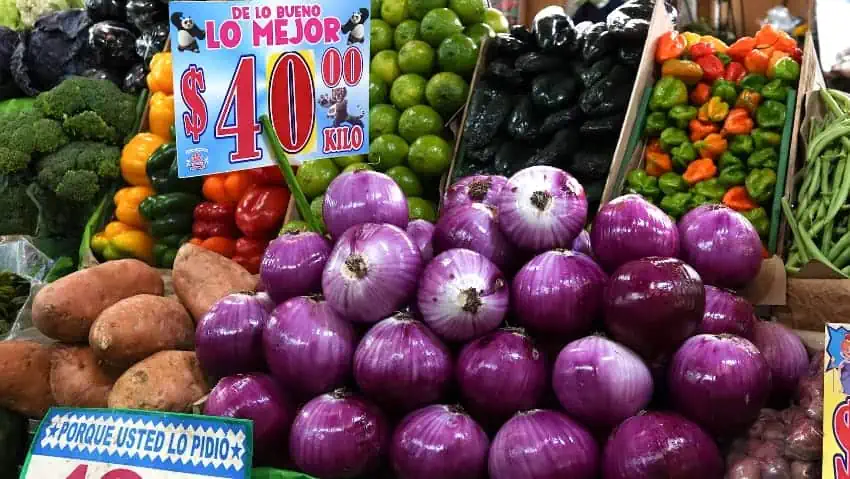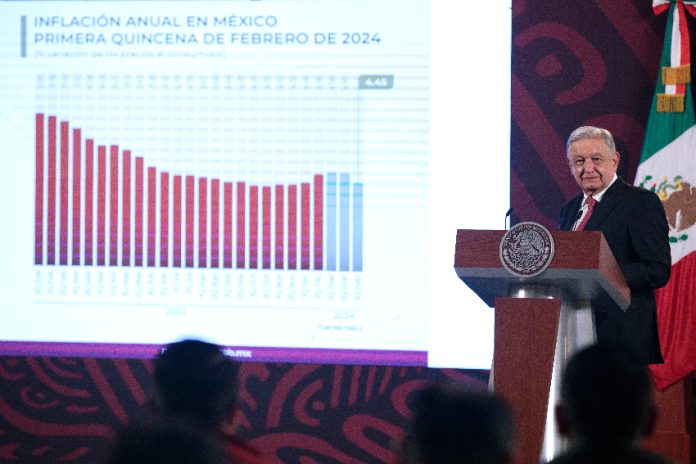Mexico’s annual headline inflation rate fell to 4.45% in the first half of February, beating the forecasts of analysts.
Reported by the national statistics agency INEGI on Thursday, the rate is 0.43 percentage points lower than the 4.88% reading for the entire month of January.
It is considerably lower than the 4.7% median forecast of 13 analysts polled by Reuters earlier this week, but still above the Bank of Mexico’s target of 3%.
INEGI data also shows that the closely-watched annual core inflation rate, which excludes volatile food and energy prices, fell to 4.63% in the first half of the month, down from 4.76% in January. Core inflation has declined steadily over the past 12 months.
The decline in headline inflation comes after increases were recorded in November, December and January. Prior to November, headline inflation fell for nine consecutive months after reaching almost 8% in January 2023.
The latest inflation data reinforces views that the Bank of Mexico will soon make an initial cut to its record-high benchmark interest rate, which has remained at 11.25% since it was raised to that level last March.
“This reading takes away a huge weight from central bankers, who could begin cutting rates next month,” said Andres Abadia, Chief Latin America Economist at Pantheon Macroeconomics.
The central bank’s next monetary policy meeting is scheduled for March 21.
Fruit and vegetable prices decline more than 7% in 2 weeks
While fruit and vegetables were just over 17% more expensive than they were in the first half of February 2023, prices dropped 7.2% compared to the second half of January, according to INEGI. Widespread drought has caused fruit and vegetable prices to increase significantly over the past year.

The only other goods and service category for which prices declined in the first half of February compared to the previous 15-day period was meat. The reduction in prices was 0.64%.
The decline in prices for fruit and vegetables and meat was sufficient for overall headline inflation to recede 0.10% compared to the second half of January.
Despite drought conditions of varying intensity in much of the country, meat prices were 3.24% lower in the first half of February than they were a year earlier.
Prices for all other goods and services increased on an annual basis. Processed food, beverages and tobacco were 5.28% more expensive, while the cost of services increased by the same percentage. Non-food goods were 2.68% more expensive, while energy prices, including those for electricity and gasoline, rose 2.44% compared to a year earlier.
With reports from El Economista and El Financiero
